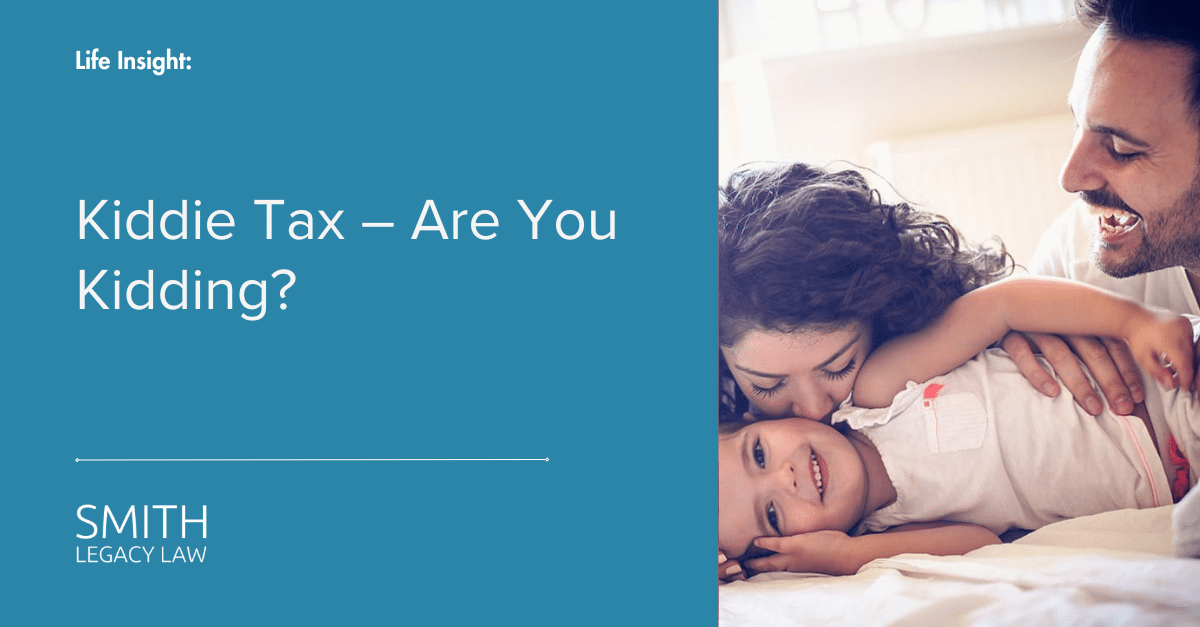Many parents wonder whether and when their children have to pay taxes. Children who earn wages pay taxes if their income exceeds their standard deduction, however, where children have unearned income, such as from investments or interest on bank accounts, they may owe taxes on this income. This tax is usually a result of the so-called Kiddie Tax.
What Is the Kiddie Tax?
The Kiddie Tax is a tax on the unearned income of a child who is under 18, or a full-time student between 19 and 23 years old as of December 31st. The purpose of the tax is to close a loophole whereby parents sought to make investments in their child’s name to take advantage of the child’s lower tax bracket.
The tax applies only to unearned income, including taxable interest, dividends, capital gains, rents, royalties, and similar investment income. Earned income, such as wages, salaries, or other compensation for personal services is subject to different rules.
In 2023, the first $1250 of a child’s unearned income is tax-free; the next $1250 is taxed at the child’s tax rate. Thereafter, unearned income over the $2500 threshold amount is taxed at the parents’ marginal tax rate. Note that this income must be reported either on the parents’ tax return or the child’s return.
How Can You Minimize the Impact of the Kiddie Tax
There are several tactics that can reduce the effect of the Kiddie Tax. The first one is to choose investments wisely. Look for investments that don’t generate taxable income such as interest and dividends. Also, avoid investments likely to incur capital gains. For example, rather than investing in individual stocks, consider mutual or index funds which you can likely hold for a longer period without selling.
Another strategy is to take advantage of a 529 plan. If your goal is to provide funds for education, a 529 plan may be a better alternative to other investments. Anyone can create and contribute to a 529 plan for a child’s benefit, including parents, grandparents, aunts/uncles, and even friends. Money taken out for educational expenses is withdrawn tax-free, including any earnings. The account owner has investment power and retains control over the funds to be used for the beneficiary. Importantly, the owner can also reassign the account to another beneficiary, such as if there are excess funds that are not able to be used for educational purposes.
A third strategy is to create a custodial IRA. If your child earns income, you can set up an IRA for them and contribute to the account according to the same rules that apply to adults. The account becomes your child’s account at 18 years old.
Do You Need Tax Advice?
If you are in doubt about whether you or your child needs to file a tax return and pay taxes, consult a tax professional. If taxes may be owed, be proactive and consider how you can reduce taxes. Keep in mind that certain of these tactics, such as a 529 plan and a custodial IRA should be part of a broader saving and wealth-creating strategy, not just done in response to possible tax liability.
We work with our clients to develop a comprehensive plan that takes into consideration all of their needs and goals so they not only save taxes but are protecting and preserving their assets for future generations. Contact us for a consultation to learn how we can help you.
